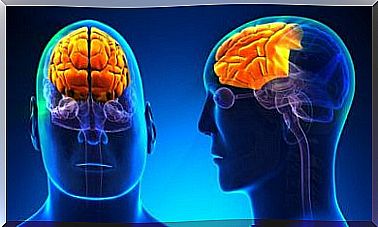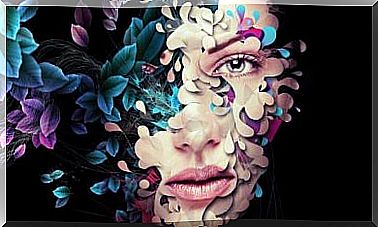11 Facts On The Best Ways To Deal With Depression

There is no single way to deal with depression, each person is a universe and each universe has its abysses, its black holes and its hidden forces. Knowing how to awaken them, first calming despair, sleepless nights, fear and apathy, will require some specific strategies. Because each one is a prisoner of his own prison and it is not the same key that works for everyone.
When we are diagnosed with depression, there is something that changes within us. On the one hand, we feel relief, since the whole set of ailments, lack of energy, bad mood and the urge to cry can be contained in a single medical diagnosis, in something that somehow constitutes a starting point for we can be helped. However, it is common for something very peculiar to happen: that we ask ourselves the classic question: What now? Will I depend on a series of medications or therapy for the rest of my life?
We sometimes have a limited view of what is supposed to be done about treating depression. Antidepressants aren’t the only strategy, and they’re often not needed. This is a decision that is up to the professional in the field. Also, another aspect to consider is that dealing with this crippling psychological condition is like starting a journey. A journey to find the best paths, the ideal routes to return home, to return to our particular balance, to our lost fortress.

1. Coordinated care between different professionals is essential to deal with depression
There is a fact that is seen more and more often: primary care physicians prescribe antidepressants and anxiolytics very easily. They are, in general, the gateway for the person who comes to them asking for help, indicating that they are no longer able to handle it, that they need to sleep, relax, stop crying so often…
To treat depression correctly and completely we need more strategies, more professionals. Thus, it is essential that the medical center has psychologists, who work in concert with primary care physicians as well as psychiatrists. It is also ideal to include social workers, who can be of great help in many cases; we must not forget that, in recent years, the group of people that is suffering the most damage from depression is the one with the fewest resources.
2. Cognitive-behavioral therapy
So far, the therapeutic strategy that has been most effective in treating depression is the cognitive-behavioral focus. Thus, if we combine these techniques with a pharmacological approach, it is likely that we will soon begin to identify significant advances.
- This therapy focuses on working the person’s way of thinking, overturning irrational ideas and favoring a gradual shift towards better control and a more logical and realistic approach.

3. Interpersonal psychotherapy
As we have already indicated, there is no single strategy to treat depression, there are several, and it is necessary to find the one that best suits our needs. So while cognitive-behavioral therapy is one of the most effective, there are also others that can help us.
Interpersonal psychotherapy is helpful when depression is the result of a problem in the patient’s interpersonal context (eg, a breakup of a love relationship or the loss of a loved one). The aim of therapy is to address both vital and stressful events and to work on one’s self-esteem, or to facilitate strategies to improve relationships with others.
4. Therapy focused on emotions
Greenberg’s emotion-focused therapy is a combination of Carl Rogers’ approach and Gestalt therapy. It is very useful for treating depression and is intended to help patients identify, work and process their emotions. All of this is done in a safe context provided by the therapist, where it becomes possible to manage anxiety and the work of the most difficult emotions.
5. Physical exercises are very beneficial
We are aware that a person with depression will not have the strength or the courage to swim, ride a bike or take a zumba class. That’s clear. However, as far as possible, the most suitable in these cases is to be able to leave the house, feel the heat of the sun, the sound of the external environment and then walk. Simply walk.
Something as simple as getting out and walking 20 minutes a day has many benefits.

6. A good diet
A good diet will not make our depression go away. What we will achieve is that our immune system becomes stronger and that our brain has adequate nutrients, which favor the release of certain neurotransmitters that will help us feel better every day.
Thus, fresh fruits and vegetables, whole grains, fatty acids such as omega-3s and foods rich in magnesium are highly recommended.
7. St. John’s Wort
There are scientific studies that confirm the usefulness of St. John’s wort as a complementary treatment for mild to moderate depression. We should not hesitate, therefore, to consult an expert regarding the doses that are suitable for us.
8. In cases where the treatment does not work, ask for a second diagnosis
There are many patients who do not show any improvement after undergoing various psychological treatments and medications. In these cases, it is necessary to ask for a second diagnosis. The reason? Sometimes behind a depression there may actually be some personality disorder that has not been identified.
9. A significant social support around us
Medications treat depression, but they don’t cure it. Psychological therapies treat, facilitate the process and give us strategies for coping with depression. The psychological support of those we love, the trust given, and the fact that we feel understood and helped are things that heal. They heal and allow the rest of the strategies to work in the same direction for success.
We must, therefore, surround ourselves with the people who are most valuable to us in order to be able to face these situations.

10. New hobbies
Our minds may not be receptive to finding new hobbies that motivate us and act as reinforcements; however, a very effective strategy for treating depression is to introduce tasks, hobbies or dynamics into our daily lives that please us, relax us and arouse interest.
Thus, exercises such as painting, writing, music, or yoga can have very rewarding results.
11. Mindfulness-based cognitive therapy to prevent relapse
A fact that we must not forget is that after overcoming depression, there is a risk of relapse. Besides, it could be that in two or three years she’ll knock on our door again.
To prevent this from happening, we have, for example, cognitive therapy based on mindfulness, ideal for applying breathing and meditation techniques in our daily lives to work on our negative thoughts, those that sometimes, and often unintentionally, continue to germinate in our mind like weeds.
To conclude, let us remember once again what we pointed out at the beginning: there is not just one way to treat depression; there are thirty modes, fifty modes, much more… It’s about finding a set of strategies that best suit our needs. For this, we rely on psychologists and psychiatrists to help us on this path to the light.









